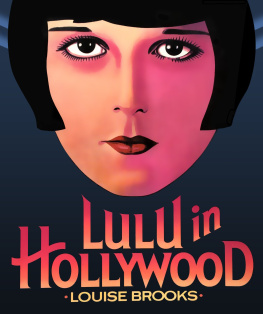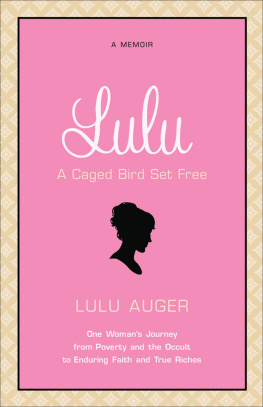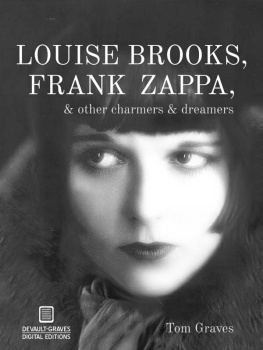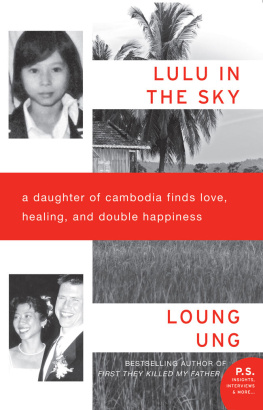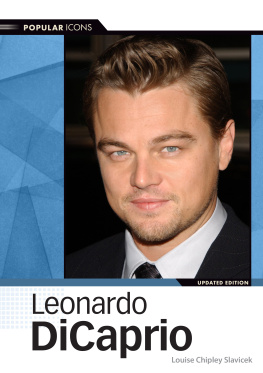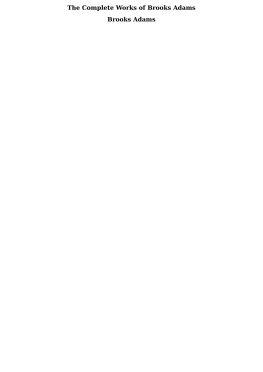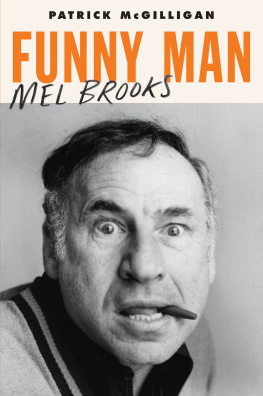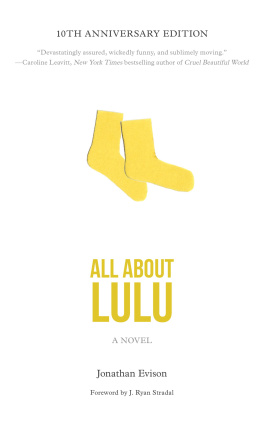Louise Brooks - Lulu in Hollywood
Here you can read online Louise Brooks - Lulu in Hollywood full text of the book (entire story) in english for free. Download pdf and epub, get meaning, cover and reviews about this ebook. year: 1982, publisher: University of Minnesota Press, genre: Non-fiction / History. Description of the work, (preface) as well as reviews are available. Best literature library LitArk.com created for fans of good reading and offers a wide selection of genres:
Romance novel
Science fiction
Adventure
Detective
Science
History
Home and family
Prose
Art
Politics
Computer
Non-fiction
Religion
Business
Children
Humor
Choose a favorite category and find really read worthwhile books. Enjoy immersion in the world of imagination, feel the emotions of the characters or learn something new for yourself, make an fascinating discovery.
- Book:Lulu in Hollywood
- Author:
- Publisher:University of Minnesota Press
- Genre:
- Year:1982
- Rating:5 / 5
- Favourites:Add to favourites
- Your mark:
- 100
- 1
- 2
- 3
- 4
- 5
Lulu in Hollywood: summary, description and annotation
We offer to read an annotation, description, summary or preface (depends on what the author of the book "Lulu in Hollywood" wrote himself). If you haven't found the necessary information about the book — write in the comments, we will try to find it.
Lulu in Hollywood — read online for free the complete book (whole text) full work
Below is the text of the book, divided by pages. System saving the place of the last page read, allows you to conveniently read the book "Lulu in Hollywood" online for free, without having to search again every time where you left off. Put a bookmark, and you can go to the page where you finished reading at any time.
Font size:
Interval:
Bookmark:
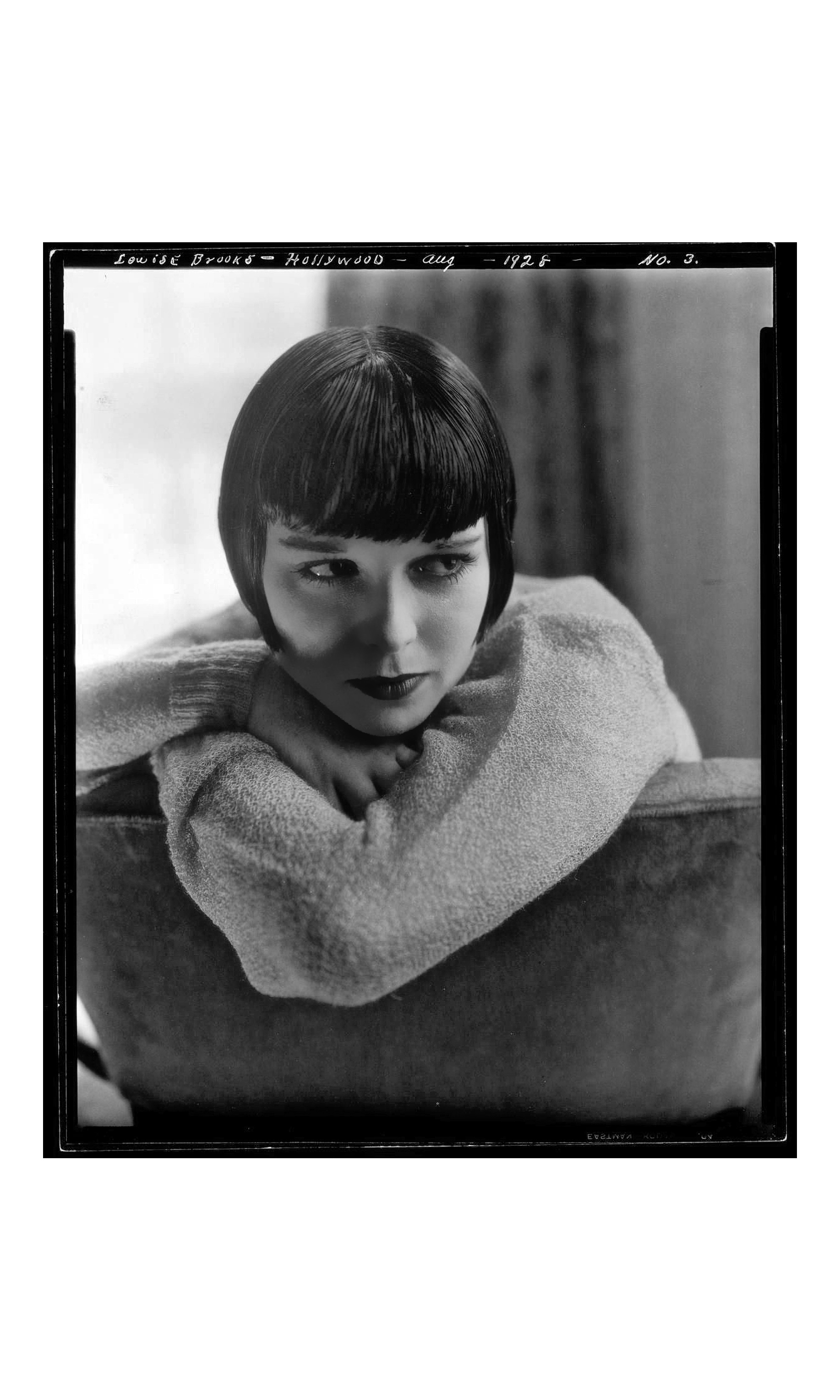

To WILLIAM CUSEO
Introduction
IT SHOULD NOT COME TO us as a surprise that a film actress can write, but, so narrow are our expectations, it does. We are even more surprised when it turns out that the actress is one of the great beauties of all time. And we are out-and-out astonished when we learn that many people think she possesses an erotic eloquence unmatched by that of any other woman ever to have appeared on the screen. It may well be that the number of beautiful, eloquently erotic film actresses who have been able to write is very, very small. But, whether it is small or large, in my judgment Louise Brooks must head the list. Louise Brooks is not only an actress who writes; she is a writer who acts. Long ago, she also danced. People who saw her dance say that she was a captivating dancer, and I am confident she was. Whatever she does, she is, indivisibly, an artist. In order to understand Louise Brooks, however, one first has to disentangle her from her most famous role: that of Lulu in G.W. Pabsts 1929 silent film Pandoras Box. There have been a host of Lulus, of course, since the German playwright Frank Wedekind created the character in his plays Earth Spirit and Pandoras Box. A number of actresses have played the role on the stage. Since Alban Berg created his vocal, atonal Lulu in the opera of that name, a number of singers have sung the role. Yet it was Louise Brooks, in silence and out of her own person, who created the fundamental, the only Lulu. As the years have passed, the image of Louise Brooks as Lulu has persisted on the screen, and has haunted, and informed, all other performances. It is difficult to believe that Louise Brooks exists apart from her creation. Pabst himself identified the two, and even Louise Brooks has had her moments of confusion. No doubt the soul of Louise Brooks is not unlike the soul of Luluthe hedonist without a sense of sin who lives for the moment and destroys men as she goes. However, there are differences. To begin with, whereas Lulu literally killed one of her lovers, Louise Brooks is a femme fatale without any record of fatalities. Lulu did not have anything that could be called a conscience. In a convoluted, clandestine, abashed way, Louise Brooks has a conscience. Then, Lulu had a big temperament and an animal intelligence, but she did not reflect on her actions, she did not think. Louise Brooks reflects, and she thinks. Lulu did not read books. Louise Brooks reads books. Finally, Lulu could not write. Louise Brooks can write.
The late Kenneth Tynan, who wrote the definitive, classic Profile of Louise Brooks, published in The New Yorker in 1979, quoted the French critic Ado Kyrou as saying, Louise Brooks is the only woman who had the ability to transfigure no matter what film into a masterpiece . Louise is the perfect apparition, the dream woman, the being without whom the cinema would be a poor thing. As a film actress, Louise Brooks presents herself to the camera squarely, totally, without equivocation; and what results is the sort of sublime acting that is like not acting at all. As a writer, she does much the same thing. Her apparently innate ability to offer herself to the screen with nothing held back carries over to her writing. When she has something to sayand she usually doesshe puts down the right words in the right order, and you have the comfortable feeling that what she has written is an end in itself: she asks nothing in return. Her directness, her powerful impulse to tell the truth, her refusal to withhold anything provide a literary foundation from which she can readily take flight; and that she does. At one point in this book, she writes of her life, And so I have remained, in cruel pursuit of truth and excellence, an inhumane executioner of the bogus, an abomination to all but those few people who have overcome their aversion to truth in order to free whatever is good in them. If she had written nothing more than that one sentence, I would be prepared to call her a writer. The sentence rises and falls in a lovely arc, the language is fresh, the thought is pure and honest. But she is far more than a one-sentence writer. This book, the first chapter of which is hitherto unpublished but most of which is drawn from a series of essays she wrote over a period of years for Sight and Sound, Film Culture, and other film publications, reveals Louise Brooks to be capable of a sustained literary effort. Her devotion to what she sees as the truth is basic, but equally important are her insight into human character, her extraordinary powers of observation, her wit, and her literary style. How it happened that this supremely observable woman should herself have become a brilliant observer of others, I dont know. Nor can I understand how it happened that this born center of attention, who might have been doomed to passivity, was all the while paying astute attention to those around her. What I do understand is that she writes marvelously, in a style that is all her own: direct, graceful, terse, exact, piercing, radiant.
WILLIAM SHAWN
LULU IN HOLLYWOOD
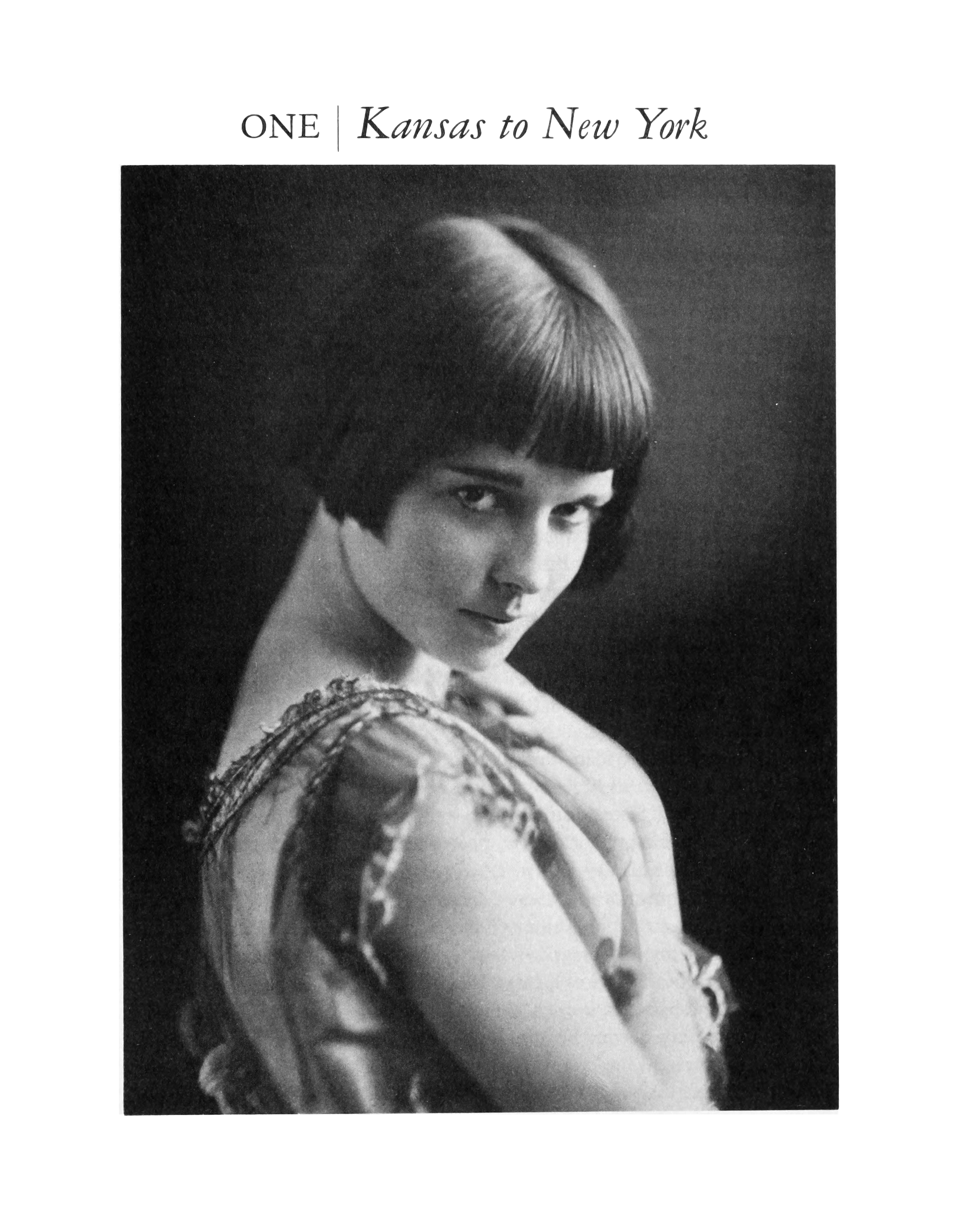
ONE | Kansas to New York
The Brooks family were poor English farmers who came to America on a merchant ship at the end of the eighteenth century. They settled in the mountainous northeastern part of Tennessee. During the Civil War, they fought against the slaveholders who owned plantations in western Tennessee. In 1871, my great-grandfather John Brooks, with his son Martin and Martins young family, journeyed by covered wagon a thousand miles across Tennessee, Arkansas, and the corner of Missouri to homestead in the southeastern part of the free state of Kansas. The government let them have one hundred and sixty acres of land near the village of Burden. There they built a log cabin, ten feet by twelve, in which all twelve members of the family had to live. The Pawnee and Cherokee Indians had already been driven into a reservation in the Oklahoma Territory, to the south, while the last of the Plains Indians were then fighting hopelessly against the United States Army and Cavalry, which soon swept their survivors west into Colorado. Furthermore, by 1875 the Indians subsistencethe millions of buffalohad been slaughtered by the white hunters. Thereafter, homesteaders poured in.
My father, Leonard Porter Brooks, who was the second of eight children, was born in 1868, before the family left Tennessee. He became a lawyer, and in 1904, at the age of thirty-six, married my mother, Myra Rude, who was nineteen. They moved to the little town of Cherryvale, Kansas, where Father worked for the Prairie Oil Company until it was gobbled up by John D. Rockefeller. Mother bore four children: Martin, in 1905; Louise, in 1906; Theodore, in 1912; and June, in 1914.
A small, black-haired man, quiet, cheerful, and energetic, my father had only two loves throughout his lifemy mother and his law practice. He dreamed of becoming a United States district judgean unrealizable dream, because his abhorrence of boozing, whoring, and profanity made him unacceptable to the rough politicians of his day. In 1919, we moved to Wichita, where my father had a general law practice and where a common joke was that L.P. Brooks is so honest that his secretary makes more money than he does. However, when he was nearly eighty, his integrity was rewarded by his being made an assistant attorney general of the state of Kansas. He died in 1960, at the age of ninety-two.
Font size:
Interval:
Bookmark:
Similar books «Lulu in Hollywood»
Look at similar books to Lulu in Hollywood. We have selected literature similar in name and meaning in the hope of providing readers with more options to find new, interesting, not yet read works.
Discussion, reviews of the book Lulu in Hollywood and just readers' own opinions. Leave your comments, write what you think about the work, its meaning or the main characters. Specify what exactly you liked and what you didn't like, and why you think so.

